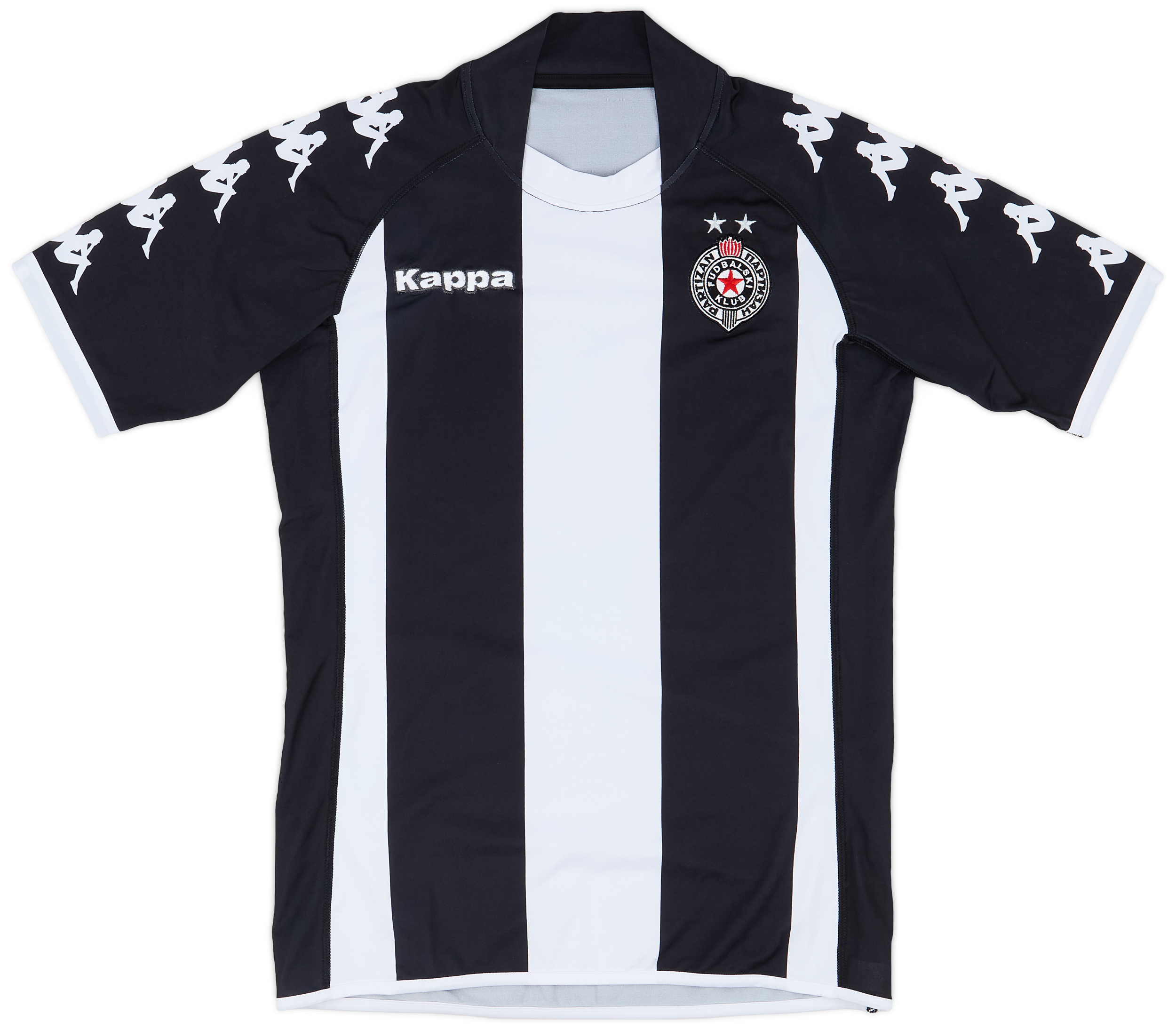Partizan
Introduction Based in the vibrant city of Belgrade, Serbia, Football Club Partizan is one of Europe’s oldest and most storied football clubs. Founded on October 4, 1920, the club originally emerged as part of the Yugoslav Army’s sports association. Named after the Partisans of WWII, the club embodies resilience and tradition, making it a prominent […]
2000-01 FK Partizan Home L/S Shirt (XL)
207.99£ - ca: €245
2004-05 FK Partizan Home Shirt - 8/10 - (3XL)
94.99£ - ca: €112
2004-05 Partizan Belgrade Away Shirt - 9/10 - (S)
94.99£ - ca: €112
2010-11 FK Partizan Belgrade Home L/S Shirt - 8/10 - (S)
82.99£ - ca: €98
2009-10 FK Partizan Home Shirt - 8/10 - (XS)
70.99£ - ca: €84
2014-15 FK Partizan Home Shirt
58.99£ - ca: €70
2023-24 FK Partizan Away Shirt
58.99£ - ca: €70
2023-24 FK Partizan Home Shirt
58.99£ - ca: €70
Introduction
Based in the vibrant city of Belgrade, Serbia, Football Club Partizan is one of Europe’s oldest and most storied football clubs. Founded on October 4, 1920, the club originally emerged as part of the Yugoslav Army’s sports association. Named after the Partisans of WWII, the club embodies resilience and tradition, making it a prominent player not only in Serbian football but also in the broader landscape of European sports. Over the decades, Partizan has developed a strong identity, characterized by passionate fans, a commitment to football excellence, and a significant cultural footprint in Serbian society.
Club History
Partizan’s rich history began in the early 20th century amidst political and social upheaval in the Balkans. The club was initially founded as a team for the Yugoslav Army, which played a pivotal role in its early organization. After the conclusion of World War II, Partizan quickly rose to prominence in the Yugoslav First League, clinching its first league title in 1947. The era of the late 1940s and 1950s was key for Partizan, as they became a leading force in Yugoslav football. The club’s first major international success came in 1966 when they reached the final of the European Champion Clubs’ Cup, now the UEFA Champions League, ultimately facing Real Madrid.
Achievements
Throughout its history, Partizan has garnered a wealth of trophies, solidifying its status as one of the most successful clubs in Serbia and the former Yugoslavia. The club has won the Yugoslav First League title an impressive 27 times, with successes continuing in the Serbian SuperLiga after the dissolution of Yugoslavia. Additionally, Partizan has secured the National Cup on 16 occasions, showcasing its consistency in domestic competitions.
Internationally, Partizan has made several notable appearances in European competitions, including its memorable 1966 run to the European Cup final. In that season, they faced off against some of the toughest teams in Europe, making their way to the final where they went down to a strong Real Madrid side. Though they did not lift the trophy, that journey remains one of the club’s most significant achievements, placing Partizan on the European football map.
Significant Players and Matches
Partizan has been home to many outstanding players who have left an indelible mark on the club’s legacy. One of the most celebrated figures is the legendary goalkeeper, Vladimir Beara, who played for Partizan from 1946 to 1959, becoming a crucial part of the team during its formative years. Another iconic player is the forward, Mitar Mrkela, who dazzled fans in the 1990s and was renowned for his goal-scoring ability.
One landmark match that is etched in history is the legendary victory against Red Star Belgrade, known as the “Eternal Derby,” which is one of the most passion-driven rivalries in football. The fierce competition between these two clubs has produced countless thrilling matches, with fans often speaking about the significance of these encounters in Serbian culture.
Cultural Impact
Partizan’s influence extends beyond the pitch, as the club plays a significant role in the culture and community of Serbia. Its fanbase, known as the “Grobari,” is renowned for their loyalty and fervor, creating an electric atmosphere during home matches at the iconic Partizan Stadium, known as the “Stadion Partizana.” The club’s colors, black and white, represent unity and strength, echoing the resilience of the fans and the city itself.
The cultural impact of Partizan is also visible in its contributions to the community and youth development. The club runs various initiatives to support young footballers, helping nurture the next generation of talent. In addition to football, Partizan is involved in other sports, promoting a holistic approach to athletic excellence that fosters a broader sense of community engagement.
Conclusion
Partizan has carved a notable place in football history, representing not only a club but a symbol of pride for many. With a record of significant achievements, including 27 league titles and a legacy of producing great players, Partizan endures as a pillar of Serbian football. As it continues to compete at both domestic and international levels, the club stands as a testament to the passion and dedication of its fans, embodying the spirit of a rich footballing tradition. As Partizan moves forward, its history of resilience and accomplishment will guide the club in its quest for greater heights in the beautiful game.







